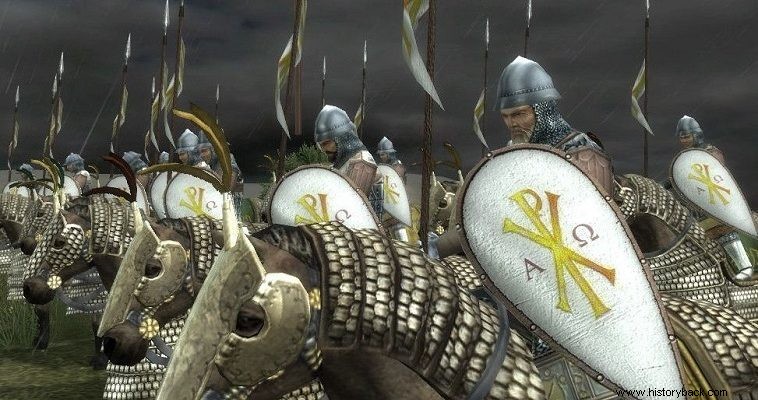
The Second Crusade began in 1145 in response to the capture of Edessa in Mesopotamia by the Muslims. It was headed by the French King Louis VIII and the German King Konrad III. The armies of the two kings marched separately.
The German army entered the Byzantine territories. Despite the fact that Conrad had named Manuel Comnenus "king of the Greeks" instead of emperor the latter, after the Germans swore not to harm the Empire, allowed them passage and the purchase of goods. The experienced Byzantine general Prosouch of Asian origin, head of a small body, watched the Germans.
But soon the Germans turned to looting. When they reached Edirne, Conrad's nephew Frederick (the future emperor Frederick Barbarossa) attacked Prosuch's division but was defeated. The Germans camped in the area but lost many of their men to a sudden downpour.
Emperor Manuel, alarmed by the behavior of the Germans but also worried about the imminent arrival of the French crusaders and the possible union of the two armies, wanted the passage of Conrad's army to Asia Minor as soon as possible. However, the German king arrogantly rejected the request of the Byzantine emperor.
After this Manuel began to prepare his forces for battle. And Conrad moved towards the City and arrived outside the walls on September 10, 1147. The German king camped outside the walls of Philopatius's palace which his men completely plundered.
After like locusts they destroyed everything, the Germans moved towards the also outside the walls of the palace of Picridius with a base from which they started looting the area killing the Byzantine farmers and stealing what they could grab.
"Alamites... work the Romans taught power"
Faced with this situation, Manuel decided to act. He ordered generals Prosouch and Vasilios Tzikandilis to leave the walls and proceed with a military demonstration before the Germans in order to provoke them. The forces of the two generals were smaller than those of the Germans, who numbered around 20,000 men, but, as the historian Ioannis Kinnamos reports, they were superior in experience and military tactics.
The two generals knew the Germans, having both been sent to watch them. So they informed the emperor that although the Germans looked impressive and were well armed and armored they lacked speed and discipline . The two generals ordered the forces with four brigades of infantry in the first echelon, the elite barricade cavalry and the elite skirmishers of light cavalry in the second and light bodies of horse archers in the third.
This lineup was rather strange. Usually the light cavalry of the horse archers were placed as the vanguard with the aim of overburdening the opponent with archery. Elite skirmishers also usually undertook flank guard duties while the infantry formed the reserve. Instead, the infantry was now being used to face the first German attack.
As the Byzantine generals expected, when the Germans saw their smaller forces lined up against them, they immediately prepared to attack. Soon they rushed with shouts but little cohesion against the Byzantines who were waiting undisturbed. From the sources it is deduced that when the Germans attacked the Byzantine infantry the horse archers of the Byzantine army came from behind and hit them in the sides and back.
In any case the Germans were soundly defeated and those who could fled . Conrad did not participate in the battle. He was further back and the men who escaped him moved towards him. The Byzantines did not put any more pressure on their opponents and the battle was terminated without the complete annihilation of the Germans as might well have happened. Manuel wanted to pressure Conrad not to exterminate him.
The humiliated German, immediately after the battle, crossed over to Asia Minor, based on Manuel's recommendations. Again, however, arrogant as he was, he refused Manuel's terms to hand over all the lands he conquered from the Turks back to the Empire. So Manuel did not give him any help. As a result, his army suffered a severe defeat at the hands of the Turks. Only after that did Conrad accept Manuel's terms and help. The remnants of the German army were transported by Byzantine ships to Palestine.
